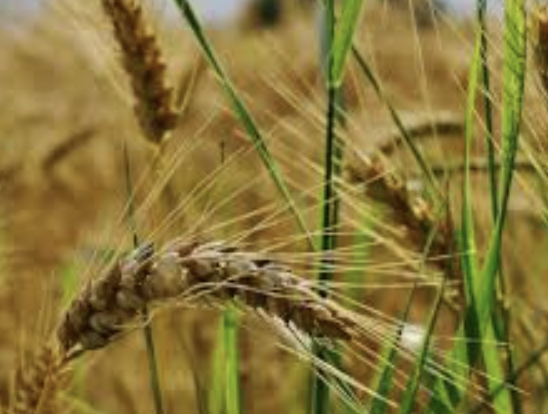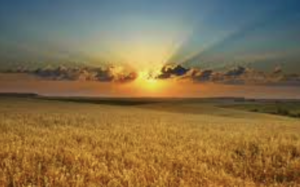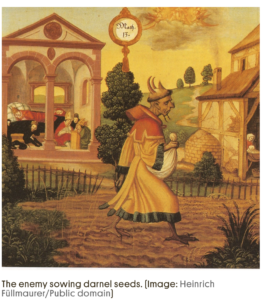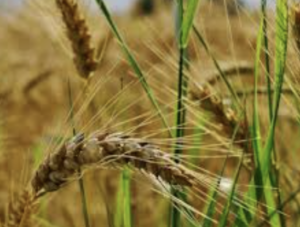
In the middle of Matthew 13 we have the start of the ‘Kingdom of Heaven is like’ passages. This is how God can be seen or how the ‘church’ might be seen if they respond accordingly. It may not be what is like above ‘on the clouds’. It is interesting that , often, it contains opposites to give added impact. The New Testament doe this a lot. Can we tell the difference?
So what is it like?

This week we will read of a field. So what might you imagine in a field if we are talking about God? Are you seeing golden sheaves of corn swirling in the wind, like the wave upon an ocean, glistening in the sunshine? Er No.
Who has planted the field then, is it all of the workers who toil in the midday sun? No.
Is it where the workers remonstrate with the owner about the abundance of the crop, knowing that a poor harvest might impact upon them? Er Yes.
Where the owner seeks a solution which will guarantee that harvest for all? Sorry No.
Wheat and Weeds
[Can be called the wheat and the tares. Tares means an injurious weed resembling corn when young.] So in this passage the owner of the field has planted the seeds, but unknown to them, ‘the enemy’ also plants another crop of weeds in that field that every night. The workers, or slaves, awake in the morning and are incensed, and they speak direct to the owner. The owner points towards the enemy – the one that he has not seen, unable to even name them, and blames them for the false crop. The workers frantically ask whether they will have to selectively pick out every weed from the whole field? No, says the owner, let it grow and then when you can easily identify one from the other, pluck out the weed then. Could we tell the difference?
So what might happen here?

There’s not much difference, in the early stages of growth, between wheat and darnel, (also possibly a form of rye). It is a ‘mimic weed’ “that looks and behaves so much like wheat that it can’t live without human assistance. Darnel seeds are stowaways: the plant’s survival strategy requires its seeds to be harvested along with those of domesticated grasses, stored and replanted next season.” When people consume darnel, they can get dizzy and nauseous: its official name, L. temulentum, comes from a Latin word for “drunk.” It stops the yield being financially beneficial.
Some say that upon maturity, the wheat ears will droop, whereas darnel stands up tall. Ah that’s how to tell the difference.
Other ‘gospels’
Interestingly, of the Parables of the Kingdom, they are all in Mark’s Gospel except this one.
When we reflect back on the parable of the soils (on the path, thorny etc),
it reflects upon the responses of humans to the word of God.
This parable focuses upon the role of evil.
A version of this parable also appears in the Gospel of Thomas., which this parable is possibly a compressed form of the Matthew parable. Rabbinic tradition has the wheat saying to the weeds
“Not what you say, and not what we say,
L.M.Teugels, Agaat Bereshit 23.4 (2001), p74
for the winnowing fan comes and separates us.
Likewise the nations of the world and Israel
are intermingled in this world…
But behold, the day will come that you will know that he makes the righteous enter the Garden of Eden and there wicked Gehenna”.
Church today

Jesus says that he is the owner of the field, which represents the world, or possibly Matthew’s Church. In Matthew 7:21-23 there are repeated examples of late teachers within the church – bad seeds? The seed he planted contains the good seeds, those who follow Jesus. The enemy plants the other seeds. ‘At the end’ the harvest will arrive and the darnel will be burnt up. Jesus says that the reapers (angels) — not the workers — will take care of this at harvest time. ‘Satan’ refers to what is opposing of God, not a red horned creature. What might this have meant at that time, to the audience then?
Following the razing of the Temple, and the turbulent times where people are seeking to follow their Jewish faith, many false leaders have arisen. There is no direct condemnation of the Pharisees here; but, Matthew’s church is considering separation from Pharisaic Judaism, so these false leaders could be anyone who are taking people away from the teachings of Jesus. Matthew emphasises that this will all end (well) in the future. Even if we can’t identify the good from the bad, with respect to being able to tell the difference, God will do so.
OK, so what do we do then?
Jesus then speaks (Matthew 13: 36-43) to the disciples privately. Why not openly? There is a thread suggesting that this explanation has been added by the early church, but I am not able to substantiate that as yet.
If we see someone who is deemed to be false teacher, so we can tell the difference, can we call out and stop them? According to this passage, we are not called to stand on a pedestal and point at others and declare them heathen or apostate. Our focus is to grow. Barbara Brown Taylor writes about God:
“that growth interests him more than perfection and that he is willing to risk fat weeds for fat wheat. When we try to help him out a little, to improve on his plan, he lets us know that our timing is off, not to mention our judgment, and that he does, after all, own the field.”
Barbara Brown Taylor, The Seeds of Heaven
What if our church members are quite well off compared to some in your neighbourhood, or even church? The role of the church is to denounce the inequality and injustice that this financial policy permits.
Questions?
- Who are the workers in the parable? umm, it doesn’t say? Matthew often uses the term “slaves”, or workers, to symbolize the disciples or the church.
- Why does God allow Evil to thrive? (answers on a postcard please)
- Do we just stand back and allow evil to proliferate then? Critiquing a position and not the person may well be acceptable.
- What if those weeds are within ourselves? To tolerate them requires hard work, or can we support one another, to listen to each other, to allow the individual to discern the weed for themselves? This gives them independence and agency.
- Any more questions?
I found the dialogue interesting and I enjoyed it